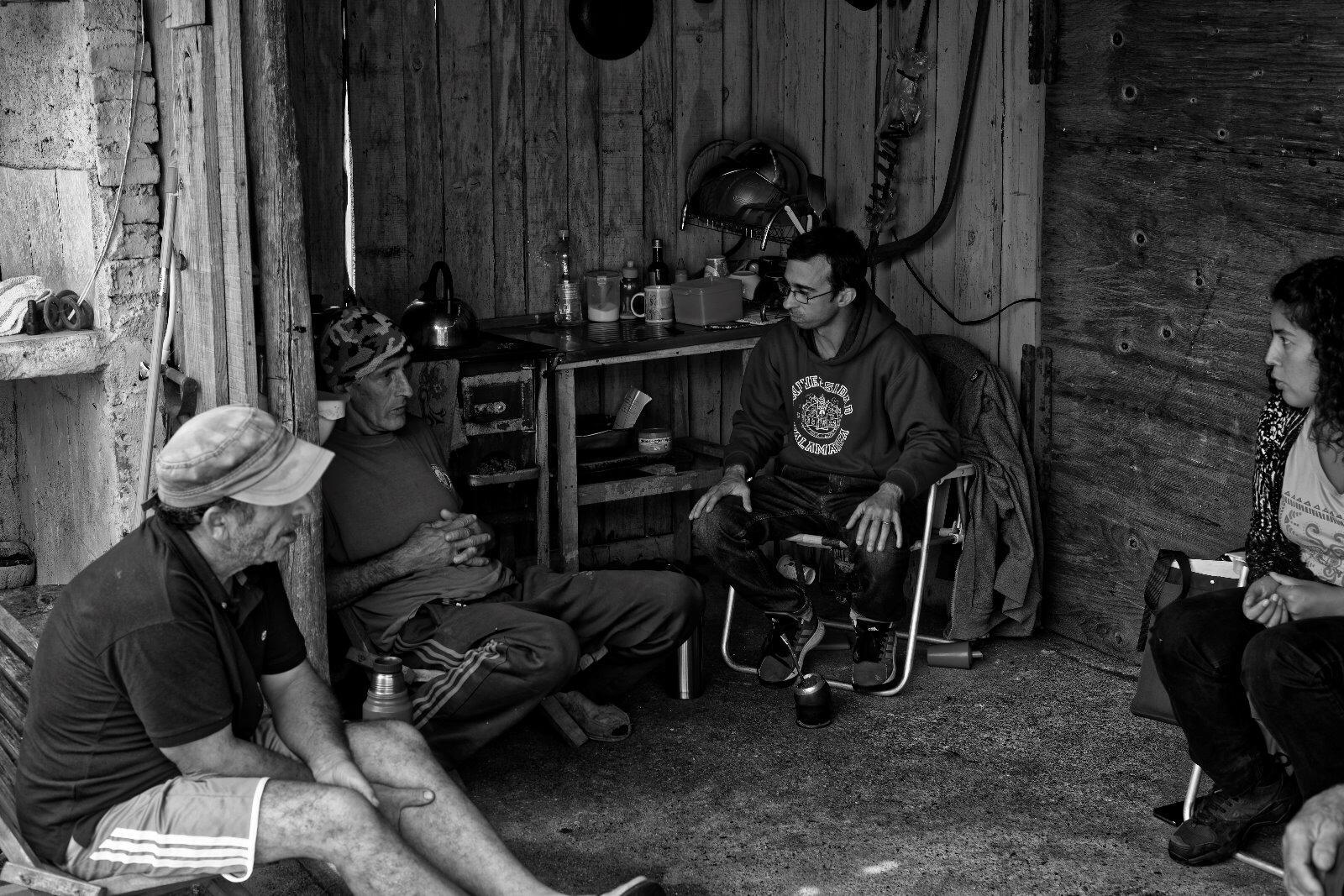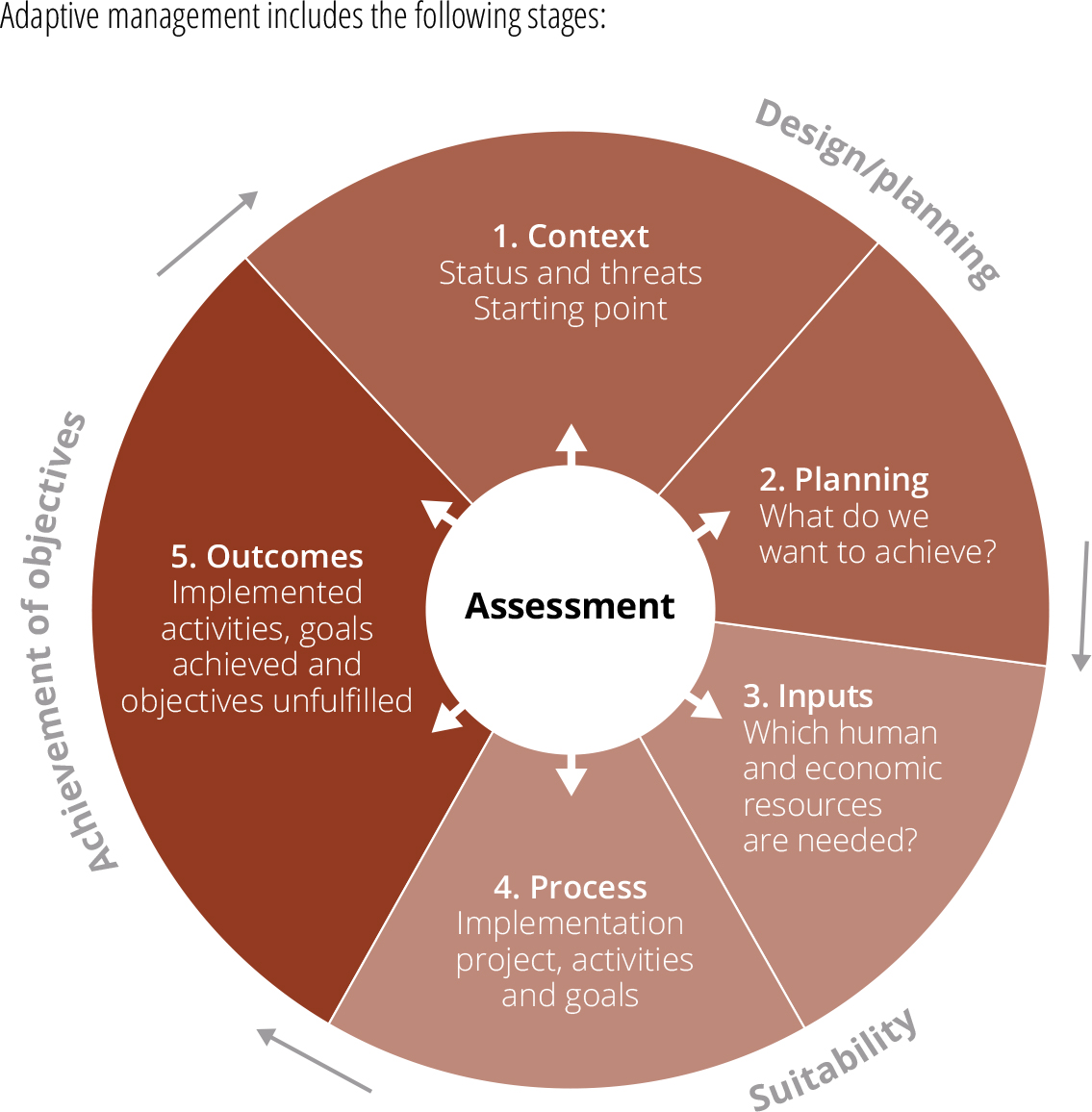Adaptive Management
It is a process of experimentation, learning and continuous improvement, which incorporates uncertainty as a key component. It is based on the understanding of social-ecological systems as complex and dynamic: their management always implies certainties and uncertainties. The aim is learning-by-doing and understanding the causal mechanisms of successes and mistakes in management, the implementationof strategies and institutional design.


Foto por Hugo Inda
Adaptive management overcomes the command-and-control paradigm and integrated management, promoting a system of continuous learning and improvement. The command-and-control paradigm assumes that the answers of a natural system to human pressures are linear, predictable and controllable. Integrated management seeks to overcome the fragmentation in the analysis and decision process, as well as strengthening the legitimacy of decisions through participation. Adaptive management implies a process of experimentation, in which rights and wrongs are sources of knowledge.
Adaptive management is an open process, which relates to the history of the system and incudes interests and expectations of present and future stakeholders. It is an iterative process to identify uncertainties and make hypothesis. These allow adjusting decisions and actions based on experience
and observed changes.

Adaptive management promotes three kinds of organizational and institutional learning processes:
– Incremental: in which plans and policies are implemented and evaluated gradually.
– Episodic: learning is sporadic and surprising, often it occurs through outside stimulus and after a crisis or an evident failure of the policies.
– Transformational: it involves not just new models but also new paradigmatic structures.
The learning process includes necessarily the scientific world, as well as other stakeholders and actors involved in management. To achieve this, it is necessary to bridge the gap between the academic knowledge and local knowledge and traditions.
Adaptive management not only tries to make case-by-case improvements, but also to create new and more flexible institutions and strategies, suitable for change and learning. This is possible only in an environment of political openness, which has to be facilitated and strengthened in an ongoing manner. The new institutional structure adapts itself, feeding and updating from knowledge gained from experience.
Key References →
Allen, C.R. and Garmestani, A.S., eds. (2015). Adaptive Management of Social-Ecological Systems. Springer Science+Business Media, Dordrecht. Biggs, R., Schlüter, M., Schoon, M.L., eds. (2015). Principles for building resilience. Sustaining ecosystem services in social-ecological systems. Cambridge: Cambridge University Press.
Birgé, H. E., Allen, C. R., Garmestani, A. S., Pope, K. L. (2016). Adaptive management for ecosystem services. Journal of Environmental Management, 183, 343-352.
Cosens, B. and Gunderson, L., eds. (2018). Practical Panarchy for Adaptive Water Governance. Springer International Publishing.
Additional suggested readings
Bustos, E. (2016). Procesos de toma de decisiones y adaptación al cambio climático. In: Ryan, D. and Gorfinkel, D., (coord.). Toma de decisiones y cambio climático: acercando la ciencia y la política en América Latina y el Caribe. UNESCO
Gunderson, L.H., andHolling, C.S., eds. (2002). Panarchy: Understanding transformations in human and natural systems. Washington, D.C., Island Press.
Holling, C. S. (1978). Adaptive Environmental Assessment and Management. Wiley, London. Reprinted by Blackburn Press in 2005.
Mazzeo N., Zurbriggen C., Trimble M., Bianchi P., Gadino I., Steffen M. (2017). Sostenibilidad ambiental del Uruguay: aportes desde el pensamiento resiliente. Instituto Sudamericano para Estudios sobre Resiliencia y Sostenibilidad (SARAS). Bella Vista, Maldonado, Uruguay
Mazzeo N., Steffen, M., Bianchi, P. (2017). Cambio climático, procesos de análisis y toma de decisión.Alianza Clima y Desarrollo (CDKN).
Ruhl, J. B. (2016) Adaptive management of ecosystem services across different land use. Journal of Environmental Management, 183, 418-423.
Stankey, G. H., Clark, R. N., Bormann, B. T. (2005). Adaptive management of natural resources: theory, concepts, and management institutions. Gen. Tech. Rep. PNW-GTR-654. Portland, OR: U.S. Department of Agriculture, Forest Service, Pacific Northwest Research Station.
Walters, C. J. (1986). Adaptive Management of Renewable Resources. New York, McGraw Hill.
